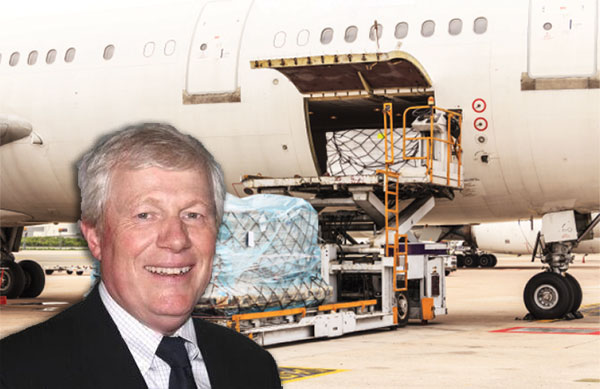A new category of companies and even individuals are exerting an ever-increasing influence over the movement of shipments. While traditional terms of shipper and consignee still used in freight transport contracts and communications, the beneficial cargo owner (BCO) class must be understood and incorporated into all aspects of developing, marketing, and operating freight transport services.
The legal definition of a BCO is the “importer of record, who physically takes possession of cargo at destination, and does NOT act as a third party in the movement of such goods.” Another definition of BCO is ‘the party that ultimately owns the product being shipped’.
While the term is most frequently applied in maritime and rail freight transport, it is increasingly being used in the worldwide air cargo logistics industry. It is not just another logistics term. It is a term that represents significant changes in the control of domestic and international shipments.
So, let’s look at the impact of the online (e-commerce) platforms. Whether using a business-to-consumer (B2C) or business-to-business (B2B) portal, it is the customer (Importer) who makes critical decisions during the ordering process. Those decisions include the exact specifications of the product and the date/time of delivery. Selections and decisions, traditionally, made by freight forwarders and logistics companies, are being taken by BCOs.
Consider an individual or company ordering a product online. Before completing the order, the product has been specified including color, size and quantity. In addition, the delivery location, date and time of delivery is specified, and in some instances the transport service. An added feature of online platforms is the ability to re-direct shipments while they are in transit.
The importer of record / ultimate shipment owner is in effect managing the entire process through the supply chain. A lack of consistent service or shipment visibility (transparency), as noted in my last blog, can cause a BCO to change its contractual relationships. Those changes can range from selecting a new freight forwarder or 3PL or transport company, to dictating routings that avoid certain seaports or airports. If delays continually occur at a specific airport or cargo terminal, the BCO can demand a new routing that does not pass through the port which has inconsistent service levels. Inconsistency can lead to lost sales or costly recovery programs that reduce margins and can lead to the loss of future orders.
Recognition of the importance of the BCO challenges the traditional approach to selling freight transport and logistics services. The historical sales approach is to approach shippers. However, as the importer (consignee in traditional parlance) is the real decision maker, then shouldn’t the sales focus be on the consignee and not the shipper? Or, if the shipper focus is preserved, origin sales staff’s compensation should be based on what happens at the destination?
E-commerce platforms are focused on the consumer. Why shouldn’t other members of the worldwide air cargo logistics industry also adopt this perspective?
As previously discussed, a long-term, based on mutual respect partnership approach is recommended over a short-term, transaction-based contract. Addressing the movement of shipments from the perspective of the importer-of-record / ultimate owner of the shipment, demands an innovative review of not just operational issues, but also the sales and marketing processes.
Charles H.W. Edwards, B.A., M.Sc., MBA, has over 50 years in the transportation, distribution, and logistics industry. Edwards is a vice president of SASI World and a professor of the practice at the University of North Carolina at Chapel Hill in the Department of City and Regional Planning. He is a Scholar Fellow of Sigma Chi Mu Tau (Supply Chain) honor society. He began his career as a truck driver in Toronto. Since then, Edwards has worked in international freight forwarding in Canada and the UAE, numerous sectors of the airline industry, aviation design and manufacturing in Germany and the United States, ocean freight, rail management, economic development, and logistics education. Edwards can be contacted at [email protected].
SC
MR


Latest Supply Chain News
- Tariffs, taxes and trade: The impact of Trump’s reelection on the supply chain
- How to improve demand forecasts for new product families
- Services sector sees growth in October, reports ISM
- Balanced supply chain management Part 4: The key—leading beyond the silo
- Managing inbound freight: What has changed in two decades?
- More News
Latest Podcast

 Explore
Explore
Latest Supply Chain News
- Tariffs, taxes and trade: The impact of Trump’s reelection on the supply chain
- How to improve demand forecasts for new product families
- Services sector sees growth in October, reports ISM
- Balanced supply chain management Part 4: The key—leading beyond the silo
- Managing inbound freight: What has changed in two decades?
- Inbound freight: Often a missed opportunity
- More latest news
Latest Resources

Subscribe

Supply Chain Management Review delivers the best industry content.

Editors’ Picks




